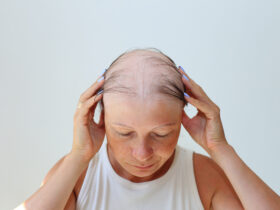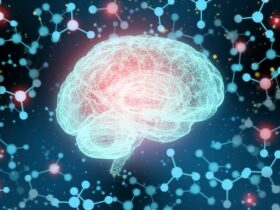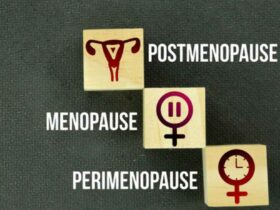Menopause can be considered as the last stage of a female reproductive age. Psychologically and physically, menopause could be confirmed as a very touchy subject for all women. The symptoms, which include such as hot flash, night sweats, vaginal dryness and sleep problems, lead to women’s overall wellbeing feeling disturbed. So, most of the time, patients with menopausal syndrome use HT, which has been the standard treatment for many years. However, it is the only recently these scientists have started to express their disbeliefs about the HT and thus the women are unsure and unable to make a sound decision in this regard.
This article examines the hormone therapy debate, detailing the research findings of one study and the possible repercussions for women who are going through hormonal changes.
Understanding Menopause and Its Symptoms
Menopause is usually encountered between the 45 and 55 years ages range. Reproduction cells or eggs are generated by the ovaries of a woman and estrogens are also produced. The estrogen level declines resulting in a series of changes in the human body. Hot flashes, marked by sudden episodes of intense heat and sweating, could be a decisive symptom coupled with the night sweats that disturb sleep. Vaginal dryness, vaginal epithelium thinning and sexual drive decrease can be key factors that could affect a woman’s sexual intimacy and her overall sexual health. Further, the women have swingy moods, anxiety, and a wide range of concentration problems on some times.

These can result in the severity varying from time to time from one woman to another. Some women may enjoy a speedy and uncomplicated menopause, while others may struggle with disarrangement. Some even experience intensely painful and hard to manage symptoms. This variability among individuals is therefore a key factor which determines how personalized treatments for symptom management can be developed.
Hormone Therapy: A Double-Edged Sword?
The female hormone therapy (HST) is since some years a prescription that is used commonly to relieve menopause symptoms. HT usually includes supplementation of waning concentrations of estrogen, and often progesterone, and this act aims to reduce the symptoms and to maintain hormone balance. On the other hand, the landscape of HT has continued to creep up in a complicated way in recent years.
In the early 2000s the huge Women’s Health Initiative(WHI) study took place which sex hormone replacement therapy (HRT) safety was accidently denoted. Women, who actually take these medicines, face such problems as breast cancer and blood clots because of the genesis of heart disease. Thus, such conclusions are available to them. The end of the early HT era, however, meant not only a decline in HT prescriptions but also an increasing number of women seeking the way out of the above-mentioned adverse effects while others simply fail to find other not as hazardous methods.
A New Look at HT: The KEEPs Study and Its Implications
A brand new study known as the KEEP (Kronos Early Estrogen Prevention), has brought back the buildings blocks of HT. The research was made for a certain resident group – healthy women who began taking HT within 3 years of their own period. From the study of the KEEPs, the estrogen-therapy at the the early stage without increasing the heart disease, blood clots or the dementia risk.
It is true however that the outcomes of the experiments done by the KEEPs study are very impressive, yet at the same time it is important to note that the KEEPs study was of a limited nature. Studies to uncover the true hazards and effectiveness of HRT should be given more prominence. This is particularly for women who initiate treatment late in menopause or have existing health issues.
Navigating the Maze: Making Informed Decisions about HT
KEEPs trials can be a light at the end of the tunnel for all those women who feel gloomy about menopausal experiences. Nevertheless, this approach has to be seen as special and particular, since it does not imply a universal solution for everybody. Here are some key points to consider when making decisions about hormone therapy:
- Individualized Approach: Menopause is a very individual matter for each woman. The interaction with a health care specialist in women’s health is really in demand so that it discusses your klacicular ones, medical history, and risk factors.
- Weighing Risks and Benefits: One of the matters to be considered in HT is that it can have both the risk and the benefit for it. Your health care provider can only help clarify these risks and benefits, while they are being interpreted in the light of your situation.
- Alternative Options: While HT is not the only alternative for managing menopausal symptoms, it might be valuable to consider some other options as well. Simple lifestyle modifications such as a regular workout, the maintenance of a healthy weight, and some stress relieving helpful strategies can reduce symptoms greatly. In addition to that, incorporating complimentary therapies into the plan might offer some minor relief as well.
Conclusion
The KEEPs study is a key source of information thus being a valuable ingredient in the ongoing debate about help-seeking behavior. Although we need more studies on the topic, it illustrates the possibility of using of low-dose estrogen therapy for managing menopausal symptoms in physically healthy females.
However, it as the most notable consequence is that they can handle menopause changes in a right way and be confident that they will make the best decision related to their health and well-being. Seeing a healthcare provider, appraising the pros and cons of HT, reviewing other options for the menopause period are those of the basic elements to be careful in coping with menopause.















Leave a Reply